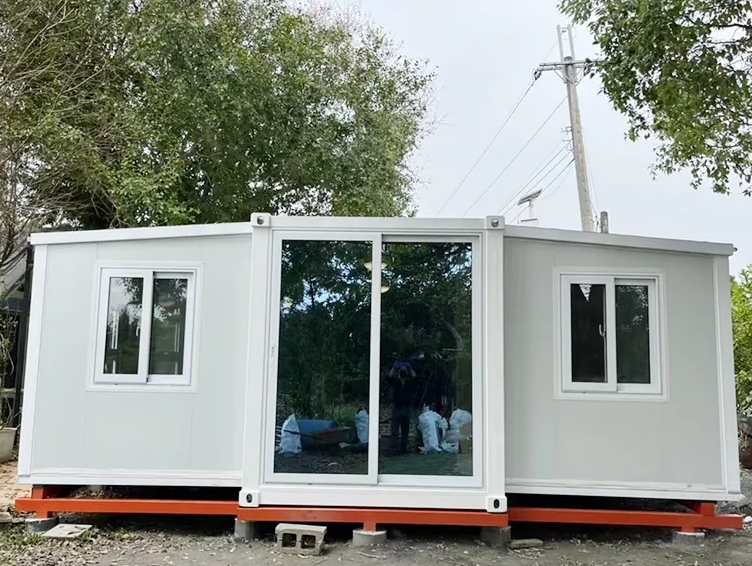What is the size of a 20 foot container house?
A 20-foot container house typically measures 20 feet in length, 8 feet in width, and 8.5 feet in height. These dimensions are standardized for shipping containers used in various industries worldwide.
Understanding the Origin and Characteristics of 20 Foot Container Houses: Shipping containers, originally designed for transporting cargo via ships, trains, and trucks, have gained popularity as building materials for alternative housing solutions. The standard size of a shipping container, including the 20-foot variant, is governed by international standards to ensure compatibility and ease of transportation.
The process of repurposing shipping containers into livable spaces involves modifying their structure to accommodate human habitation. While the external dimensions remain unchanged, interior modifications may include insulation, flooring, windows, doors, and utility connections. These alterations transform the container into a comfortable and functional dwelling suitable for residential use.
Benefits and Practical Applications of 20 Foot Container Houses:
Compact Size: The compact footprint of a 20-foot container house makes it ideal for urban environments or properties with limited space. Its small size allows for easy placement in backyard settings or on narrow lots, providing a cost-effective housing solution in densely populated areas.
Pros and Cons of Prefab Granny Flats
Advantages And Highlights of Expandable Container Houses
Do You Need a Slab for a Container Home?
What are the benefits of expandable container house?
Are Foldable Container Houses the Future of Sustainable Living?
What are Benefits of Light Steel Structures?
Can Monument Benches Be Used As a Substitute for Conventional Headstones?
Portability: The standardized dimensions of shipping containers facilitate transportation and relocation, offering flexibility for homeowners who may need to move or repurpose their living spaces in the future. Container houses can be easily transported via truck, crane, or ship to different locations as needed.
Sustainability: Repurposing shipping containers for housing promotes sustainability by recycling surplus containers that would otherwise remain unused or discarded. By utilizing existing materials and reducing the need for new construction, container houses contribute to environmental conservation efforts and minimize carbon footprints.
Customization: Despite their prefabricated nature, 20-foot container houses offer ample opportunities for customization and personalization. Homeowners can choose from a variety of design options, layouts, and finishes to create a unique and comfortable living environment tailored to their preferences and lifestyle.
Affordability: Container houses are often more cost-effective than traditional construction methods, offering an affordable housing solution for individuals or families on a budget. The streamlined construction process and use of recycled materials help reduce overall project costs, making container houses accessible to a wider range of people.
Conclusion: The size of a 20-foot container house, measuring 20 feet in length, 8 feet in width, and 8.5 feet in height, conforms to international standards for shipping containers. Despite its compact dimensions, a 20-foot container house offers numerous benefits, including portability, sustainability, customization, and affordability. By repurposing shipping containers into livable spaces, homeowners can enjoy a cost-effective and environmentally friendly housing solution that meets their needs and lifestyle preferences.
Discover the Versatility of Plain Steel Wire Mesh
Unlocking the Benefits of Flying End Mesh
Colored Coated Aluminium Coil Material vs. Traditional Aluminum: A Comparison
How Do You Secure Weather Stripping?
A Comprehensive Guide to Different Types of Bristle Paint Brushes
How to Troubleshoot y1860s3: Common Issues Solved
Hotel Conference Room Chairs: Balancing Comfort, Style, and Practicality










